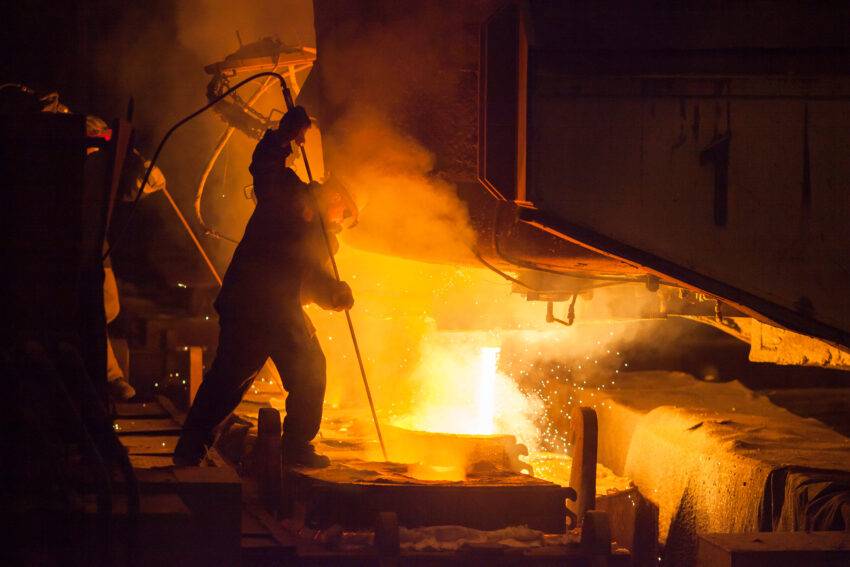The UK government is exploring the renationalisation of British Steel in a bid to safeguard thousands of jobs at its Scunthorpe site, amid stalled negotiations with its Chinese owner, Jingye, over a £1 billion investment plan.
Business Secretary Jonathan Reynolds is leading discussions with Jingye to determine a funding agreement for the company’s transition to greener steel production. However, with little progress made, sources suggest the government is open to taking over the company, reversing Margaret Thatcher’s 1988 privatisation of the steel industry.
A Whitehall insider noted that nationalisation is a “last resort” due to the substantial financial commitment it would entail. However, unions and industry advocates are urging the government to act decisively to protect the Scunthorpe plant, which employs 4,000 people and remains the UK’s sole producer of steel from iron ore.
British Steel’s blast furnaces at Scunthorpe, which accounted for 0.8% of the UK’s carbon emissions in 2023, are at the heart of the debate. Plans to replace them with an electric arc furnace — crucial to meeting the UK’s net-zero targets by 2050 — have been delayed as Jingye resists committing the necessary investment, leaving the government potentially liable for the full cost.
Renationalisation would not be without challenges. Experts warn that allowing the blast furnaces to cool without proper shutdown measures could render them unusable, while managing operations during a transition to electric furnaces could cost tens of millions.
The decision also carries political implications. Labour leader Keir Starmer has criticised past neglect of the steel industry, pledging to make Britain a leader in steel production. Sharon Graham, general secretary of Unite, welcomed the prospect of nationalisation, stating, “The UK government being an investor of first resort is an important first step.”
Negotiators face a tight deadline, as British Steel is expected to exhaust its current supply of raw materials by the end of January. Unions, including GMB and Unite, have proposed a multi-union plan to protect jobs and production, calling on the government to prioritise nationalisation over taxpayer support for private sector failures.
British Steel, which was briefly nationalised in 2020 before its acquisition by Jingye, has struggled with high costs and increased global competition. The ongoing standoff raises questions about the future of steel production in the UK and its role in national infrastructure and security.
A spokesperson for the Business Secretary emphasised the government’s commitment to securing a “green steel transition” that supports jobs and offers value for taxpayers. Discussions are ongoing, but all options, including nationalisation, remain on the table.

